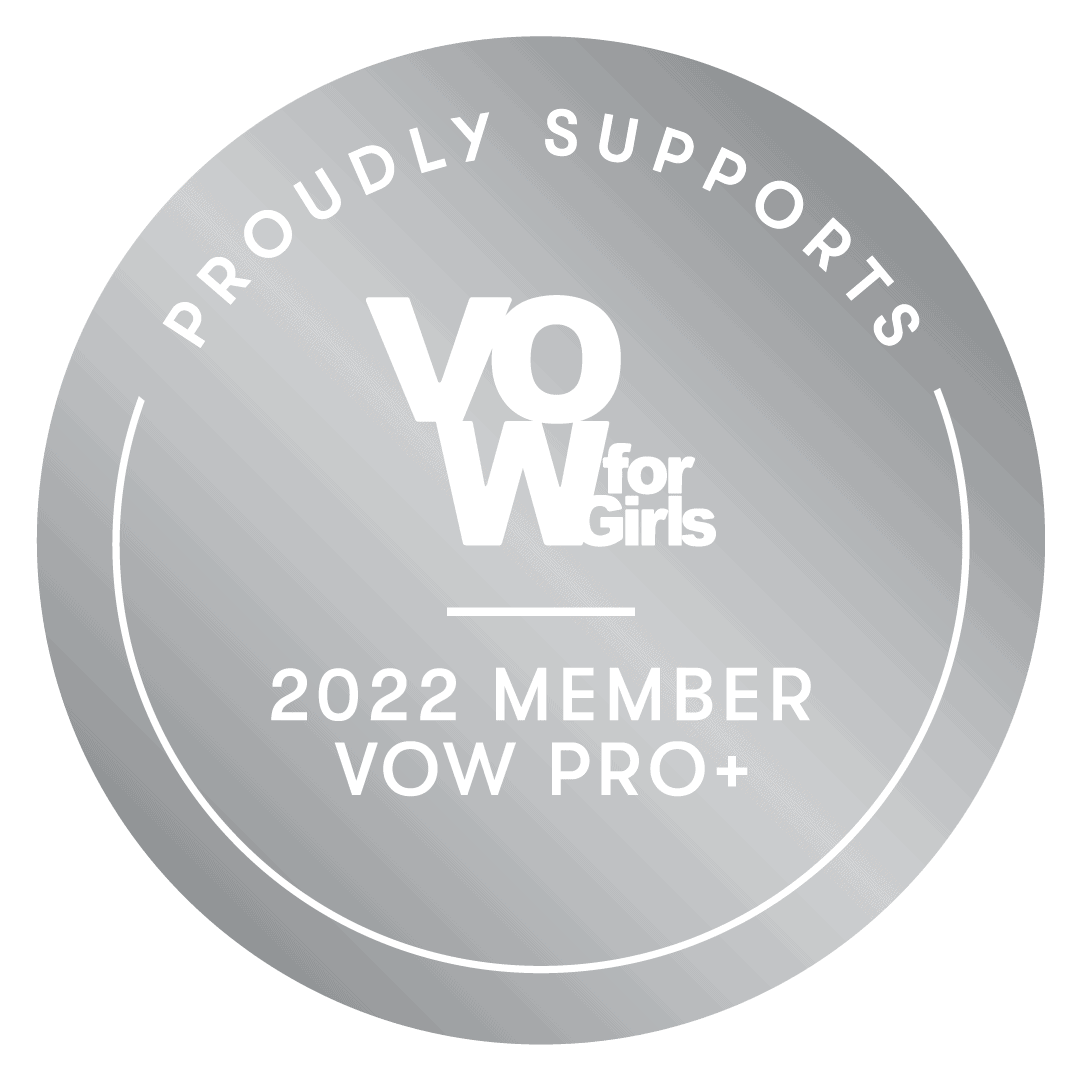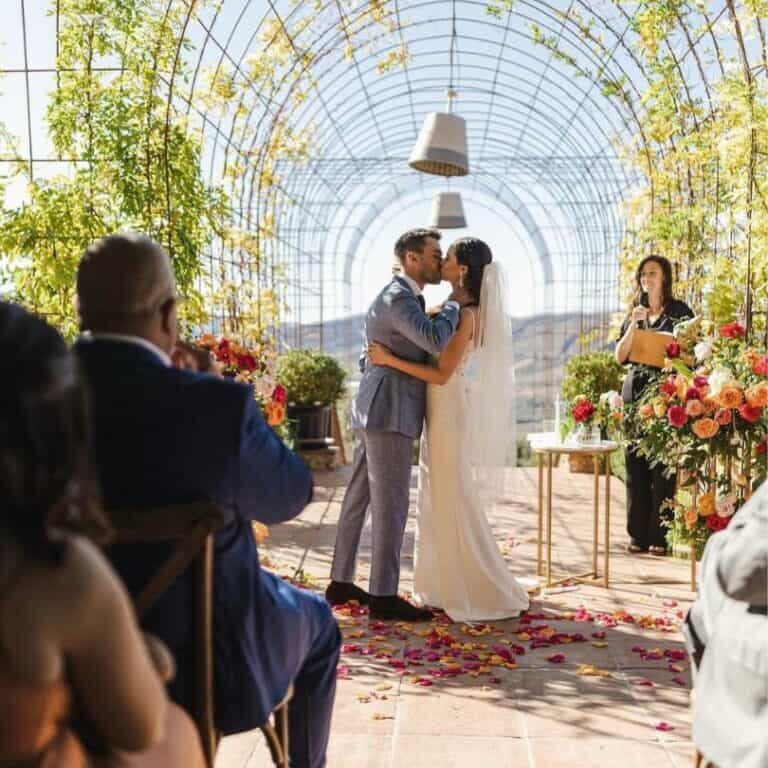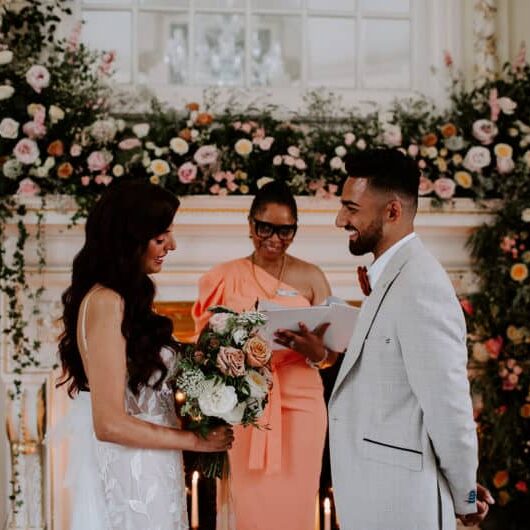Celebrancy is a growing profession in Ireland fueled by demand for personalised, non-religious, and interfaith ceremonies. Celebrants facilitate meaningful moments in people’s lives; they officiate weddings, funerals, naming days, renewals of vows, and more. With Irish society becoming more secular and culturally diverse, there is an increased need for professional celebrants who can conduct inclusive, tailored ceremonies.
Becoming an accredited celebrant requires thorough training and adherence to standards of excellence set by celebrancy associations. Accreditation ensures celebrants develop the skills and knowledge needed to craft ceremonies that meet the needs of Irish individuals and families.
As an independent certified Celebrant in Ireland, you can choose to work in the Republic of Ireland and/or Northern Ireland. Before you can work your creative magic and deliver unforgettable ceremonies, you’ll need to train to become a Celebrant with a course provider that offers the best learning option for you.
If you want to become an accredited Celebrant in Ireland, there are a few things you need to know…
Understanding Celebrancy in Ireland
Accredited celebrants are trained professionals who construct and perform personalized ceremonies. Their role includes meeting the married couple or families to understand their vision, writing scripts, preparing rituals, facilitating ceremonies, and completing legal paperwork.
Celebrancy requires dedication to continued training and development. Accreditation from renowned institutions provides credibility and assures celebrants obtain extensive learning in ceremony planning, public speaking, presentation, and more.
The Landscape of Celebrancy in Ireland
Celebrancy varies across Ireland. The Republic of Ireland legalized secular and multi-faith wedding ceremonies in 2010 under the Civil Ceremonies Act. Northern Ireland also allows humanist and interfaith weddings. Funeral and naming celebrants are active across the island of Ireland.
The choice Irish individuals now have between religious and secular ceremonies points to celebrants playing a pivotal role in providing inclusive, meaningful options that meet a diversity of needs.

Types of Celebrants and Ceremonies
Wedding Celebrants in Ireland
Wedding celebrants specialize in designing bespoke nuptials aligned with a couple’s personality and vision. They have expertise in crafting interfaith or non-religious ceremonies. Unlike Civil Ceremonies carried out by a civil registrar or Solemiser, Independent Celebrants can carry out ceremonies on any day of the week and include spiritual and religious references from any and all faiths.
You’ll be joining couples on their romantic journey into committed married life, and creating beautifully personal and emotional ceremonies that can include cultural and symbolic elements.
Funeral Celebrants in Ireland
Funeral celebrants focus on memorializing a loved one through a unique life celebration. They assist families with funeral planning and provide specialized support throughout bereavement. Independent Funeral celebrants can conduct non-religious ceremonies as a compassionate alternative to religious ceremonies, but unlike civic employees or Humanist Celebrants, they have the freedom to include religious or spiritual aspects.
Naming Celebrants in Ireland
Naming ceremonies, led by celebrants, offer a non-religious alternative to celebrate a child’s introduction to the community, focusing on the child’s individuality and the parents’ hopes for their future. Naming Celebrants can also craft interfaith naming ceremonies that combine aspects from different religions, cultures and beliefs.
Naming celebrants plan and facilitate ceremonies welcoming babies, adoptions, transitions, and cultural rites of passage. They aim to reflect family heritage and values. Naming days retain meaning across one’s life.
Independent Celebrants vs Humanist Celebrants vs Solemisers in Ireland
Independent Celebrants are those trained and accredited through private institutions not affiliated with any particular belief system or ideology. They facilitate weddings, funerals, naming ceremonies and other life events for all individuals regardless of faith, culture or values.
As Ireland becomes more secular and diverse, independent celebrants fill the demand for meaningful, inclusive and personalised ceremonies reflecting the uniqueness of every marrying couple and family. With no preconceived ceremonies to adhere to, independent celebrants collaborate to craft customized events.
Unlike religious officiants from any one religion or humanist celebrants committed to non-theistic worldviews, independent celebrants offer complete flexibility in serving Ireland’s diversity. Their role is to weave together bespoke ceremonies specific to their clients’ spiritual values, cultural backgrounds and personal stories.
Independence allows celebrants to conduct religiously-infused interfaith weddings or strictly non-religious funerals tailored for the deceased. Continued training ensures excellence, crossing any ceremonial need.
Understanding the Key Differences between officiants in Ireland
Religious officiants are restricted to only performing their faith’s ceremonies. Humanist celebrants solely facilitate non-religious events. In Southern Ireland, only registered Solemnizers are authorized by the government to marry couples legally; however, they must either be a registrar employed by the Health Service Executive (the Registration Authority) or a member of a religious or secular body.
Civic Solemnizers can only marry you during strict office hours, Monday to Friday, and you are restricted to a set ceremony format with no religious poems, songs or readings.
In Northern Ireland, legal marriages can only be performed by a minister, priest or pastor or person who has been registered as an officiant and authorised by the Registrar General to conduct religious/belief marriages, or in a civil marriage ceremony conducted by a registrar or deputy registrar for the district in which it is to take place.
Independent celebrants fill the gap through extensive accreditation in ceremonies from all backgrounds. Their versatility and focus on inclusive customization make them increasingly vital for contemporary Ireland as they serve all beliefs and traditions with grace and skill.
How do I become a Celebrant in Ireland?
Although the most popular wedding ceremony in Ireland is the traditional church ceremony, the demand for Celebrant-led blessings is on the rise. More and more couples want to tie the knot in a special ceremony that is emotional, meaningful and personal.
At the Academy of Modern Celebrancy, we offer a modern way to make your dreams of becoming a certified Celebrant come true. Whether you’re located in Cork or Donegal, it’s possible to train as a Celebrant around your lifestyle commitments from the comfort of your home and at a pace that suits you.
While you can train in the old-fashioned way – by attending a classroom-based in-person or residential Celebrancy course – online Celebrant training in Ireland is the easiest and quickest route to gaining accreditation, business know-how, and the confidence to create memories through ceremonies.

Independent Celebrant Training and Accreditation
Reputable institutions across Ireland offer comprehensive celebrant training programs, including online courses. Programs integrate theoretical learning and practical experience on convening ceremonies, speaking, and business operations. Celebrants achieve accreditation upon completing training and assessments.
Online training provides flexibility, catering to committed individuals across all Irish counties through guided learning supplemented by in-person components. Choosing an accredited course ensures high standards are met.
Becoming a Celebrant in Ireland
The steps to becoming an accredited celebrant include:
- Deciding your celebrant focus – wedding, funeral, or naming
- Finding an accredited celebrant training program that suits your needs
- Completing coursework and assignments
- Passing assessments in ceremony planning and delivery
- Learning Celtic rituals and global union rituals
- Applying for membership in a professional celebrant organization
- Gaining celebrant credentials and accreditation
- Officiating required ceremonies under supervision
- Ongoing professional development through courses and events
Of course, if you want the easiest route to becoming an accredited celebrant in Ireland, check out our Master Celebrant Course.
Certificated Celebrant Training vs Accredited Celebrant Training
Certificated Celebrant Training typically provides a certificate upon completion, indicating mastery of the course content. On the other hand, Accredited Celebrant Training is recognized by an official accrediting body, in our case, NOCN National Open College Network and Ofqual, ensuring the training meets certain standards and criteria.
The key difference between certificated and accredited training lies in the level of external validation and recognition each type of training offers, with accreditation generally seen as a higher standard due to its formal endorsement by a professional body.

How long does it take to become a Celebrant in Ireland?
While some in-person residential Celebrant Training can be completed in less than a week, we wouldn’t recommend starting your career that way; that’s a lot of information to take on in a short period and most people prefer to have more support as they learn. The more favoured online celebrant training courses, like ours, typically span 4-12 weeks, offering up to a year for completion.
Some students can complete the course and coursework in as little as 4 weeks, but you can take as long as you want or need.
The best AMC online Celebrant training course is structured to provide full support and 1-2-1 mentoring throughout your learning experience. On average, it takes students just 4 weeks to complete the course and achieve accreditation.
Building your Celebrant business
After completing your accredited celebrant training, establishing your reputation and clientele is the next step. This involves actively marketing your services through online platforms, print materials, vendor partnerships, and community networking.
The timeline for building a thriving celebrant business varies depending on your availability and ambition. For part-time celebrants conducting occasional ceremonies, you may secure your first bookings within 2-3 months post-training through referrals and light promotion.
For those pursuing celebrancy as a full-time vocation, you should expect to invest at least 6-12 months in laying the marketing foundation and making connections before expecting consistent bookings. Attend wedding fairs, create a strong online presence, network relentlessly, and be patient, securing renowned vendors as partners.
Remember, newly accredited celebrants are continually enhancing their craft and reputation. Construct a 1-year business plan identifying monthly milestones for your marketing approach, community engagement, and ceremony bookings. Commit to excelling as a celebrant and serving diverse ceremonial needs with personalised grace and skill.
What qualification do you need to be a Celebrant?
Whilst no formal qualification requirements are needed to become an independent celebrant in the UK, most celebrants opt for formal training to teach them how to become a successful celebrant.
Firstly, decide if you want to train as a Wedding Celebrant, Funeral Celebrant, or naming celebrant since they require different skill sets.
You’ll need to learn about the industry, how to plan, write and conduct meaningful ceremonies, as well as how to promote yourself and how to run a successful celebrant business.
Most celebrant training programmes will teach the key skills of public speaking and presenting, creative writing and storytelling and how to write a personalised ceremony. But as an independent Celebrant, you’ll also need to learn business skills like sales and marketing – how to be visible and get bookings, the legal side, what contracts you need etc.
How much does it cost to become a Celebrant in Ireland?
The cost of becoming a Celebrant in Ireland depends on the training course provider you have chosen. You can expect to pay upwards of €1000 to train as a celebrant for weddings, funerals and naming ceremonies. Residential training usually starts around €4000.
Once you’re an accredited Celebrant in Ireland, the sky is the limit in terms of your earning potential. Independeny Wedding celebrants generally charge anywhere between €500 – €1500 per wedding ceremony, Funeral Celebrants typically charge between €300 – €500 for a funeral ceremony and Naming Celebrants charge similar fees between €250 – €600

Can you become a Celebrant online in Ireland?
If you live in Ireland, Online Celebrant training can give you access to global training talent and complete flexibility to fit your training around your schedule. Online celebrant training offers a flexible & accessible way to learn and train to be a Celebrant. The best online celebrant training courses are structured so you can work at your own pace from the comfort of your home anywhere in the world.
Online training usually involves having access to online modules covering various aspects of celebrancy, including ceremony planning, legal considerations, and creating personalized ceremonies for weddings, funerals, and other occasions.
Trainees engage with interactive content, assignments, and possibly live sessions, allowing for flexibility around personal schedules. Support from tutors and a community of fellow trainees enhances the learning experience. For a deeper understanding of how our Online Celebrant training is structured and what it entails, you can explore more details on the Academy of Modern Celebrancy’s course enrolment and course selection pages.
Interested in Celebrant Training?
Find out more about our exclusive online training for Celebrants in Ireland, and all over the world.

Jennifer Claire
Jennifer is the Director of the leading celebrant training company, The Academy of Modern Celebrancy as well as the Founder of The Celebrant Directory, supporting over 600 celebrants globally.
Jennifer run a 2.5k community of celebrants who she dedicates her time to helping them grow their businesses and taking celebrancy from a hobby to a lifestyle.
Jennifer heads up the global Celebrant Industry Awards and the global celebrant summit, Celebrantopia each year!
A celebrant herself since 2010, she knows what it takes to make it in the industry and trains the best celebrants out there across the UK, Europe and the USA.
Take the Quiz to find out if you have what it takes!
Download the Ultimate Guide to becoming a Celebrant & find out how you can make this happen!

If you liked this article you may enjoy ...
Training to be an accredited Celebrant in Spain
Celebrancy is a growing profession in Spain fueled by demand for personalised, non-religious, and interfaith ceremonies, destination weddings and robust ex-pat communities from the UK and beyond. If you’re considering Training to be an accredited Celebrant in Spain, there are a few things you’ll need to know, so we’ve put together this handy guide to…
5 Essential Skills for Celebrants
Have you ever dreamt of officiating life’s most cherished moments – the joyous vows of a wedding ceremony, the heartwarming welcome of a newborn child, or the dignified farewell of a loved one? Celebrants play a crucial role in weaving these threads of life into meaningful experiences. But what exactly does it take to become…
Wedding Celebrant Outfits: 2024 Style Guide
As a wedding celebrant, you’re not just officiating a ceremony; you’re contributing to the overall atmosphere of the special day. While the focus is naturally on the couple, your attire plays a role in setting the tone and ensuring you look professional and polished. And in 2024, we’re throwing the rulebook out of the window!…
As featured in










